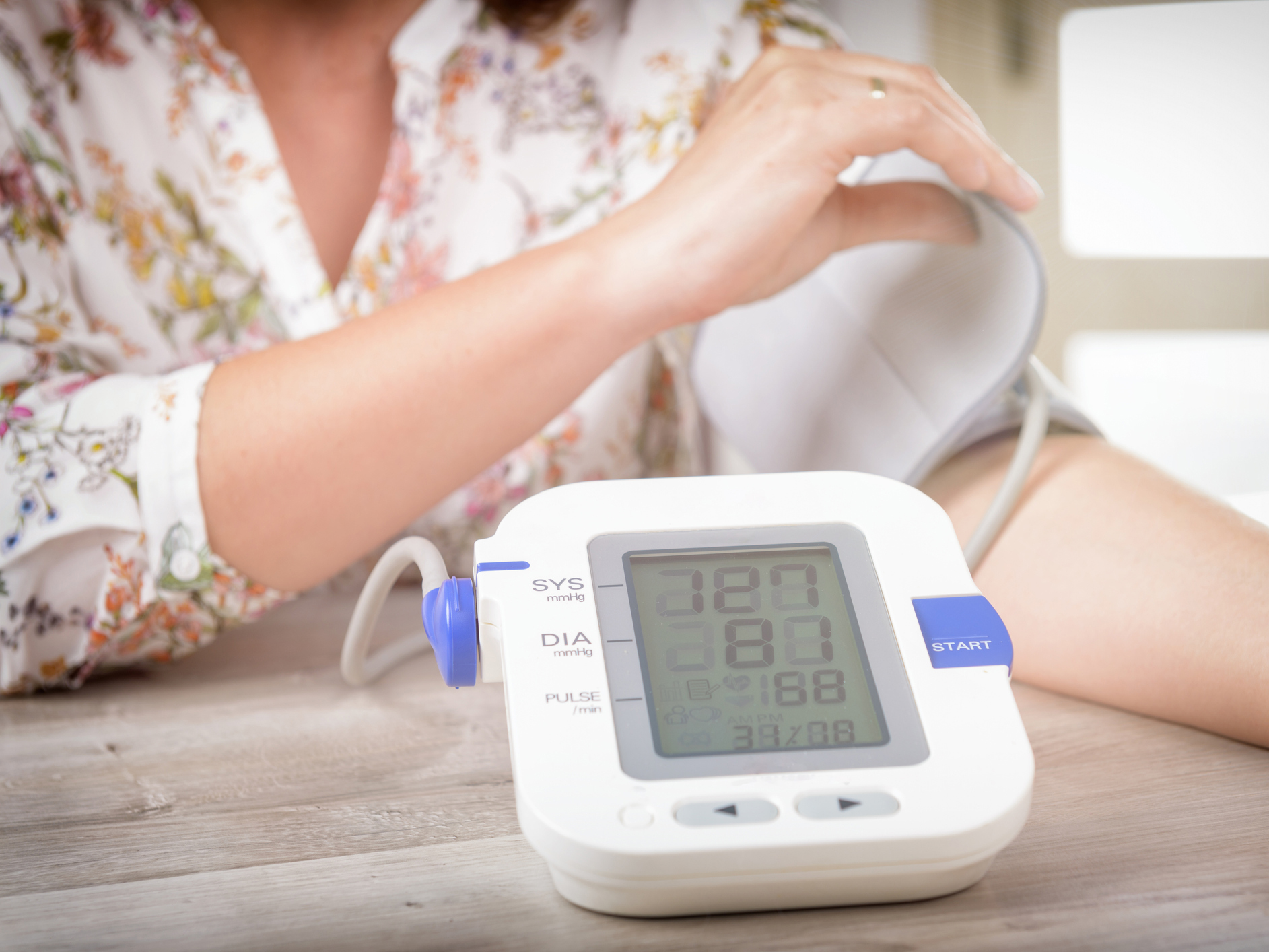Get Easy Health Digest™ in your inbox and don’t miss a thing when you subscribe today. Plus, get the free bonus report, Mother Nature’s Tips, Tricks and Remedies for Cholesterol, Blood Pressure & Blood Sugar as my way of saying welcome to the community!
High blood pressure just might be optional

This week’s post is adapted from a post by Dr. Michael Greger on nutritionfacts.org.
I found the information so compelling, I felt I needed to share it. Dr. Greger makes a good argument that high blood pressure just might be optional.
Turns out, that for the first 90 percent of our evolution, humans ate diets containing less than a quarter teaspoon of salt a day (about 500 mg of sodium). That’s because we mostly ate plants.
As a result, we evolved into salt-conserving machines.
This served us well until we discovered that salt could be used to preserve foods. And even though salt preservation may have led to a general rise in blood pressure readings across populations, this was a big boon to human civilization. After all, the alternative (starving to death or eating rotted food) was not exactly a great option.
Today, salted food is not so much necessary for survival as it is necessary to please our taste buds.
So, what’s the downstream effect of that? High blood pressure.
Shaking too much salt for our DNA
Genetically, we are still programmed to eat one-tenth of the sodium that most of us consume, so the body conserves it like crazy. That creates a big problem.
A “normal” blood pressure reading is considered to be at or below 120/80, with somewhat higher numbers considered acceptable as we get older, since blood pressures tend to get higher with age. But even readings over 100 for the top number are associated with increased health risks.
Today, one-third of US adults have hypertension, defined as readings of 140/90 or greater before medications. And, as expected, high blood pressure is the leading contributor to heart failure, kidney disease, and stroke.
But what would happen if we ate the same amount of salt as our ancient ancestors? Would we all still get high blood pressure? To test this, you’d have to find a population in modern times that doesn’t use salt, eat processed food, or go out to eat…
Meet the Yanomami
A population found deep within the Amazon jungle, demonstrate the lowest salt intake ever reported.
That is, the members of the Yanomami tribe probably have a totally normal salt intake for our species. So, what happens to their blood pressure as they age?
They start out with a blood pressure of about 100/60 and end up with a blood pressure… of about 100/60.
Indeed, NONE of the Yanomami have high blood pressure — compared to 38 percent of other Brazilians.
Of course, there could be other factors responsible for these astounding blood pressure readings. Yanomamis don’t drink alcohol, they eat a high-fiber and plant-based diet, get lots of exercise, and have no obesity.
What’s really needed to prove the salt hypothesis is a trial where we take people with high blood pressure readings, withhold all blood pressure lowering medications and instead give them an extremely low salt diet, and then see what happens.
Believe it or not, this has been done…
When food lowered blood pressure
Dr. Walter Kempner took patients with blood pressures of 210/140 (yes you read that right) and put them on a rice and fruit diet. Blood pressure dropped down to as low as 80/60 (you read that right as well).
Now, you might be thinking, why would any physician even try this? After all, we have so many different drugs to lower blood pressure rapidly and safely. Some might argue the point of side effects, of course.
Related: 19 natural alternatives for healthy blood pressure
Well, the rice and fruit diet was used back in the 1940s, before antihypertensive drugs had been invented.
The point of sharing this information with you is not to have you throw out your blood pressure medications and start eating rice and fruit. The point of this blog is to point out, yet again, how much influence food has over your health.
A diet high in fruits and vegetables (and reduced in sodium), known as the DASH diet, is as effective as a medication in reducing blood pressure readings. Add more beans, leafy greens, fruits, vegetables, nuts and seeds, and whole grains. The antioxidants, fiber, and omega 3 fatty acids don’t only help lower blood pressure — they help lower cholesterol too! Learn more about that at Step One Foods.
*We never advise that anyone stop or reduce any medication without their doctor’s approval and oversight.
Sources:
- The Yanomami Indians in the INTERSALT Study — Arquivos Brasileiros de Cardiologia
- Hypertension — National Center for Health Statistics













